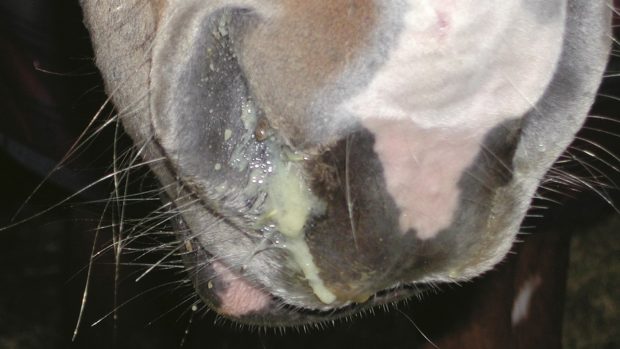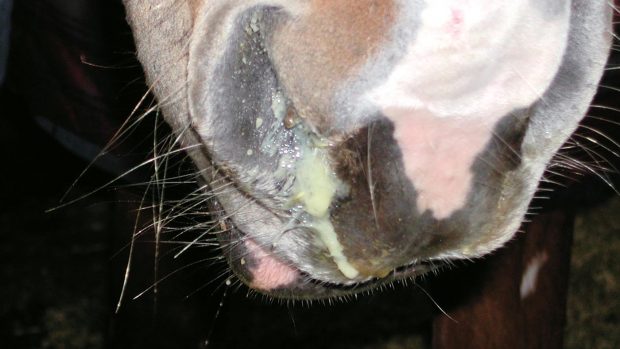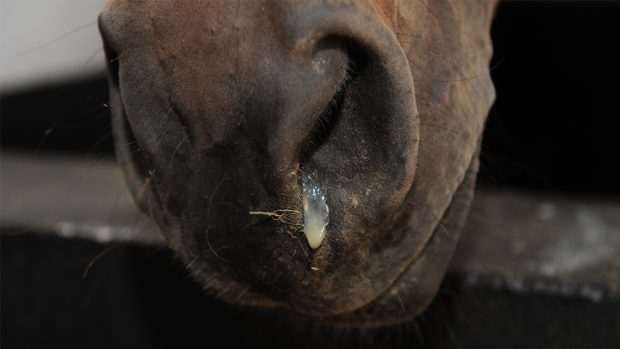What threat does equine herpes infection pose to our horses’ health — and how worried should we be when we hear about an outbreak in our area?
Q: I’m going to a show in the area of a recent outbreak — is it safe?
A: Yes, but take precautions. Try not to let horses touch noses and be sure to avoid touching other people’s horses yourself, or letting them touch yours. Wash your hands and disinfect your transport afterwards — ask your vet about suitable disinfectants for this.
Q: A new horse is arriving at our livery yard next week. Should he be isolated?
A: Yes. All yards should be able to organise a remote corner of a paddock where new horses can be quarantined — this is an effective means of reducing disease risk. Ideally, isolate him for at least three weeks to reduce the risk of admitting a horse to the yard that’s incubating disease.
Q: Would a six-week embargo on travelling to shows, clinics, studs and racecourses stamp this problem out?
A: An embargo of this kind isn’t necessary. It can be almost impossible to pinpoint the source of an EHV-1 outbreak, as many horses carry the virus without showing any signs.
Q: I think my horse may have come into contact with an affected horse. What should I do?
A: Monitor his temperature on a daily basis (contact your vet immediately if it exceeds 38.5°C) and be vigilant for lethargy, respiratory signs or wobbliness. Try not to worry — not all horses infected with neurological strains of EHV-1 develop neurological disease and most do go on to make a full recovery.
Q: Should we ask our farrier to wash his boots and put clean overalls on when he comes to our yard?
A: Washing boots and hands is a good idea for anyone moving between yards. Stricter biosecurity measures, under veterinary supervision, should be implemented immediately in the case of an outbreak.
Q: The showground stables where my horse will be staying overnight have grilles between them. Is this OK, or should we hang up sacks so the horses can’t reach through?
A: Reducing nose-to-nose contact between horses and limiting the opportunity for aerosol spread does help control virus transmission, but there will, unfortunately, always be some risk where air spaces are shared.
Q. Should I vaccinate my horse against EHV?
A: The vaccine does not protect against the neurological form of the disease and generally it is not recommended to vaccinate in the face of an outbreak. But for the general horse population vaccination, combined with biosecurity and hygiene measures, will reduce the risk of your horse getting the virus. Even though it may not provide complete protection, there is no reason not to vaccinate.
Q: How long can the virus last on horses, in mucus or in grass?
A: It may persist for several days in mucus or on wet bedding or grass. Don’t take chances in stables or areas where other horses have been if you’re unsure of their health status.




